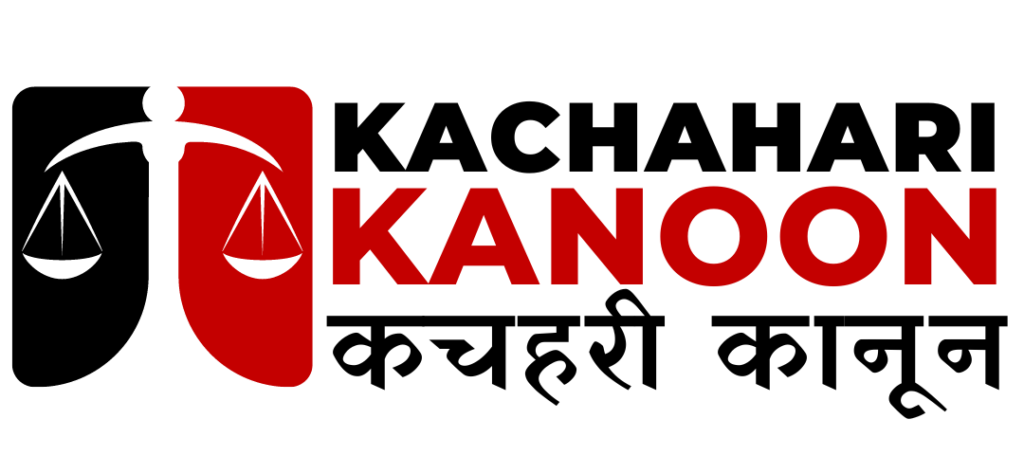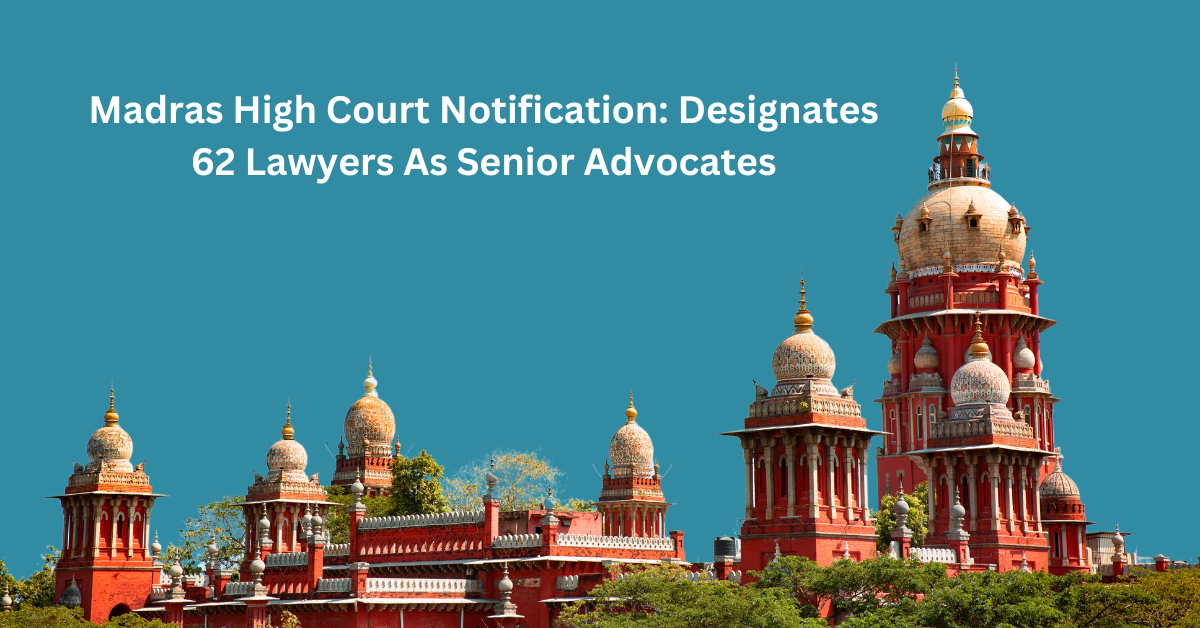In Exercise of the powers conferred by Section 16(2) of the Advocates Act 1961, the High Court of Madras is pleased to designate the following Advocates as Senior Advocates.
S. No. Name of the Advocates (Tvl.) Enrolment No.
| 1 | N. Chandrasekaran | 38/1966 |
| 2 | A. V. Somasundaram | 75/1968 |
| 3 | N. Jothi | 82/1973 |
| 4 | S. Natarajan | BCM/230/1973 |
| 5 | T.S.R. Venkatramana | 190/1974 |
| 6 | S. Vijayakumar | BCM/304/1975 |
| 7 | K. Ravi | BCM/354/1975 |
| 8 | V.S. Jayakumar | BCM/392/1977 |
| 9 | K.R. Tamizh Mani | 329/1978 |
| 10 | C.T. Mohan | BCM/411/1978 |
| 11 | K.M. Ramesh | 741/1980 |
| 12 | K. Balasundaram | 635 /1981 |
| 13 | P.L. Narayanan | 382/1982 |
| 14 | Krishna Srinivasan | 74/1983 |
| 15 | K. Srinivasan | 88/1983 |
| 16 | Jayesh 8. Dolia | 926/1983 |
| 17 | M.V. Venkataseshan | 1009/1984 |
| 18 | N. Ananthapadmanabhan | 208/1985 |
| 19 | R. Rajarathinam | 530/1985 |
| 20 | V. Raghavachari | 397/1986 |
| 21 | V .P. Sengottuvel | 679/1986 |
| 22 | T. Pramod Kumar Chopda | 710 / 1986 |
| 23 | M. Aravind Subramanyam | 339/1987 |
| 24 | G. Karthikeyan | 605/1987 |
| 25 | P.V.S. Giridhar | 757/1987 |
| 26 | K. Ravi Anantha Padmanaban | 925/1987 |
| 27 | R. Srinivas | 623/1988 |
| 28 | K.S. Viswanathan | 656/1988 |
| 29 | C. Arul Vadivel @ Sekar | 847/1988 |
| 30 | S. Ravi | 850/1988 |
| 31 | T. Lajapathiroy | 855/1988 |
| 32 | Ravi Shanmugam | 588/1989 |
| 33 | P. Kumaresan | 603/1989 |
| 34 | N. Muralikumaran | 628/1989 |
| 35 | AL. Ganthimathi | 676/1989 |
| 36 | P.M. Subramaniam | 1008/1989 |
| 37 | M. Subashbabu | 38/1990 |
| 38 | R. Baskaran | 989/1990 |
| 39 | Dakshayani Reddy | 993/1990 |
| 40 | T. Mohan | 1142/1990 |
| 41 | K.K. Senthilvelan | 994/1991 |
| 42 | G. Sankaran | 1158/1991 |
| 43 | J. Sivanandaraaj | 590/1993 |
| 44 | S.R. Rajagopal | 920/1993 |
| 45 | N.A. Nissar Ahmed | 960/1993 |
| 46 | A. Abdul Hameed | 821/1994 |
| 47 | A.K. Sriram | 948/1994 |
| 48 | R. Parthasarathy | 1 (A)/1995 |
| 49 | Abdul Saleem | 450/1995 |
| 50 | Srinath Sridevan | 1109/1995 |
| 51 | P. Valliappan | 138/1997 |
| 52 | K.P.S. Palanivel Rajan | 294/1997 |
| 53 | S. Mukunth | 663/1997 |
| 54 | J. Ravindran | 745/1997 |
| 55 | P.V. Balasubramaniam | 940/1997 |
| 56 | B. Saravanan | 1052/1997 |
| 57 | T. Gowthaman | 978/1998 |
| 58 | R. Gandhi | 1231/1998 |
| 59 | R. John Sathyan | 1425/1998 |
| 60 | Abudu Kumar Rajaratnam | 1446(A)/ 1998 |
| 61 | Hasan Mohamed Jinnah | 1591 /1999 |
| 62 | M.Sricharan Rangarajan | 1737/2006 |
READ NOTIFICATION:
Madras High Court Notification: Designates 62 lawyers as Senior Advocates









